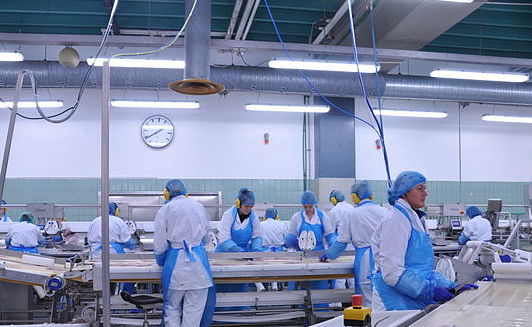Our Assembly-Line Future?
By Stuart A. Newman,
Counterpunch
| 07. 31. 2018
Human civilization has taken an important turn with the publication of a new report by the Nuffield Council, the semi-official bioethics agency of the United Kingdom. The document, two years in preparation, gives the go-ahead to genetically engineer human beings at the embryonic stages of development. The report stated: “There is potential for heritable genome editing interventions to be used at some point in the future in assisted human reproduction, as a means for people to secure certain characteristics in their children.” If history is a guide, the U.S. will not lag far behind the U.K. in following this dangerous path.
The U.K. pioneered human genetic engineering by approving, earlier this year, a technique to construct embryos using parts of the eggs of two different women, along with a man’s sperm, to create “three-person embryos.” Though deceptively promoted as “mitochondrial transfer,” the procedure really involves transferring around 20 thousand genes from a woman with impaired mitochondria into another woman’s egg. The accurate “three-person” designation was only widely used in the scientific literature after the procedure became legal. Similar misrepresentations of...
Related Articles
By David Jensen, California Stem Cell Report | 02.10.2026
Touchy issues involving accusations that California’s $12 billion gene and stem cell research agency is pushing aside “good science” in favor of new priorities and preferences will be aired again in late March at a public meeting in Sacramento.
The...
By Alex Polyakov, The Conversation | 02.09.2026
Prospective parents are being marketed genetic tests that claim to predict which IVF embryo will grow into the tallest, smartest or healthiest child.
But these tests cannot deliver what they promise. The benefits are likely minimal, while the risks to...
By Mike McIntire, The New York Times | 01.24.2026
Genetic researchers were seeking children for an ambitious, federally funded project to track brain development — a study that they told families could yield invaluable discoveries about DNA’s impact on behavior and disease.
They also promised that the children’s sensitive...
By Arthur Lazarus, MedPage Today | 01.23.2026
A growing body of contemporary research and reporting exposes how old ideas can find new life when repurposed within modern systems of medicine, technology, and public policy. Over the last decade, several trends have converged:
- The rise of polygenic scoring...




